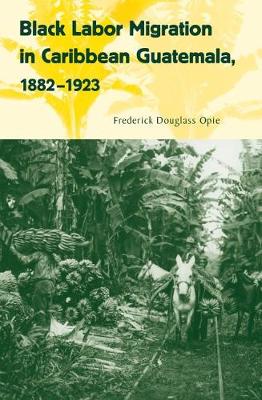In the late nineteenth century, many Central American governments and countries sought to fill low-paying jobs and develop their economies by recruiting black American and West Indian labourers. Frederick Opie offers a revisionist interpretation of these workers, who were often depicted as simple victims with little, if any, enduring legacy.
The Guatemalan government sought to build an extensive railroad system in the 1880s, and actively recruited foreign labour. For poor workers of African descent, immigrating to Guatemala was seen as an opportunity to improve their lives and escape from the racism of the Jim Crow U.S. South and the French and British colonial Caribbean.
Using primary and secondary sources as well as ethnographic data, Opie details the struggles of these workers who were ultimately inspired to organise by the ideas of Marcus Garvey. Regularly suffering class- and race-based attacks and persecution, black labourers frequently met such attacks with resistance. Their leverage--being able to shut down the railroad--was crucially important to the revolutionary movements in 1897 and 1920.
- ISBN13 9780813044422
- Publish Date 15 September 2012 (first published 1 July 2009)
- Publish Status Active
- Publish Country US
- Imprint University Press of Florida
- Format Paperback
- Pages 160
- Language English
